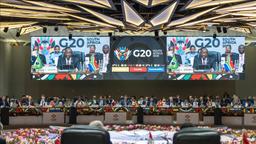
Policy Note/ Fatih Özatay, Güven Sak
A century after the 1918-1920 Spanish flu, we are facing a similar global outbreak. On the one hand, the battle against the disease continues, on the other hand, we are in a situation which requires us to measure the economic impacts and put forward precautionary steps for liberalizing the decision-making process.
Currently, in order to curb the spread and take time saving measures for those managing the process, “social distancing” has been suggested by the authorities as a precaution; consequently, slowing the rate of COVID-19 while a vaccine to control the outbreak can be found. In terms of health, this is the only measure that we have now. Correspondingly, this measure also causes negative economic consequences.
Due to the implementation of social distancing, some workplaces, especially those in the service sector, are closing. Employees have already or are now faced with the risk of losing their jobs. A spontaneous decline in demand is found in hotels, restaurants, public transportation, and civil aviation amongst numerous other portions of the service sector. Likewise, it is clear that there is a high risk of failing to meet mutual obligation in value chains. This is the first point.
You may read policy note from here.
This policy note was published in Dünya Newspaper on 23.03.2020






